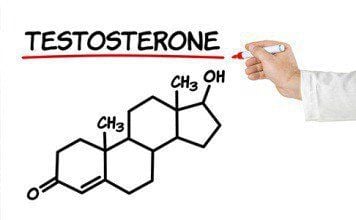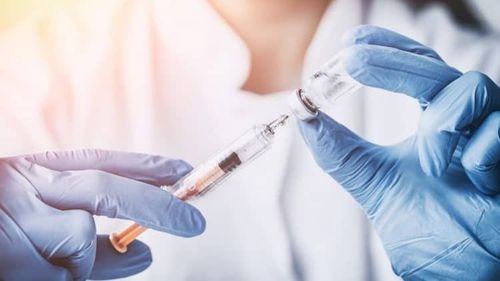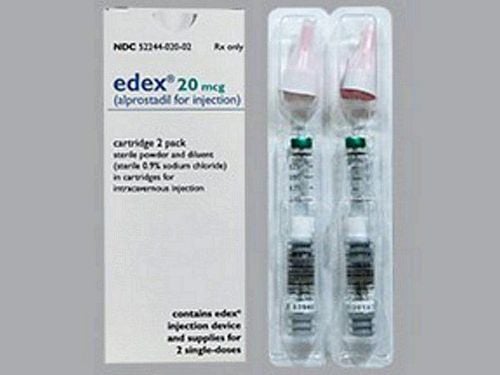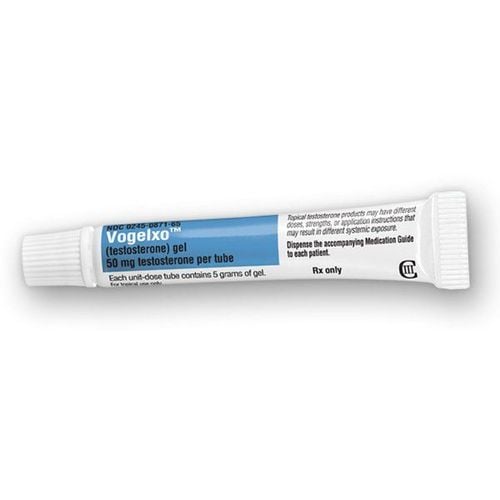This is an automatically translated article.
When you feel your body getting heavier and heavier. Pleasure in bed is significantly reduced. Mental strength and mood become less stable. This is one of the signs of testosterone deficiency, if you are experiencing any of these abnormal signs should you think about having a Testosterone test?
1. Normal and Abnormal Testosterone Levels
Testosterone levels in men are considered normal if they range between 300 and 1000 nanograms per deciliter (ng/dL). In women, levels of this hormone will range from 15 to 70 ng/dL. However, changes in testosterone levels can still occur at different stages in life.
1.1 For Men Men's hormone levels can naturally decline due to factors such as: Age or medical conditions. After the age of 40, testosterone levels in men drop.
The following symptoms may indicate that a person's testosterone levels are alarmingly low:
Decreased sex drive Loss of penile erection (erectile dysfunction) Loss of fertility Fatigue body fatigue. 1.2 For women Women with too much testosterone in the body may experience hirsutism, a deep voice or a decrease in breast size and even acne.
The cause of testosterone overload in women can be polycystic ovary syndrome (PCOS). This syndrome makes it difficult for them to get pregnant and interferes with menstruation.
Abnormally high or low testosterone levels in men and women can both be signs of serious medical conditions. Testosterone levels that are too high can indicate ovarian cancer or testicular cancer. Low levels of this male hormone can indicate chronic diseases or problems with the pituitary gland, which produces hormones.
1.3 For Young Children Signs of abnormal testosterone levels in infants of both sexes can be more extreme than in adults. Testosterone tests are usually given to boys and girls who are not developing normally or have delayed puberty.
Boys who have problems with testosterone deficiency often have slow growth, no body hair and slow muscle growth. Too much testosterone can cause menstrual delays or hirsutism in girls and premature puberty and roughness in boys.
So when encountering the above problems, patients need to visit a specialist to be examined and assigned a reasonable test to rule out the risks, as well as get the right treatment.

Sau tuổi 40, nồng độ testosterone ở nam giới sẽ sụt giảm.
2. How is the testosterone test done?
Testing for testosterone levels will involve a simple blood test. This test will take a sample of the patient's blood in the morning, when and when testosterone levels are at their peak. This test may be repeated once or several times to ensure accuracy.
Before starting the test, the doctor may ask the patient questions about whether they have been taking prescription drugs that can affect testosterone levels. Some drugs that can increase testosterone levels include:
Steroids (testosterone levels can drop rapidly after stopping this drug) Barbiturates (sedatives) Anticonvulsants (anticonvulsants) Androgen therapies or estrogen Some medications, including opiates, can cause testosterone levels to drop. If you are already taking any of these medications, tell your doctor to ensure the accuracy of your testosterone test. Based on the patient's symptoms, the doctor can apply a health test.
In men, this health test is intended to evaluate conditions such as:
Facial hair loss Height reduction Feminization of the mammary gland Abnormal weight gain For women:
Unusual pimples on the face Beard (around mouth and chin) thick growth Thin hair and baldness. Several studies, including one that sampled nearly 1,500 men between the ages of 20 and 90, have confirmed that salivary testosterone testing is relatively accurate, especially in when used to diagnose hypogonadism in men.
But besides that, some experts still recommend that saliva testing is still not completely reliable. They argue that additional tests such as serology should be applied to ensure the accuracy of the results of this test.
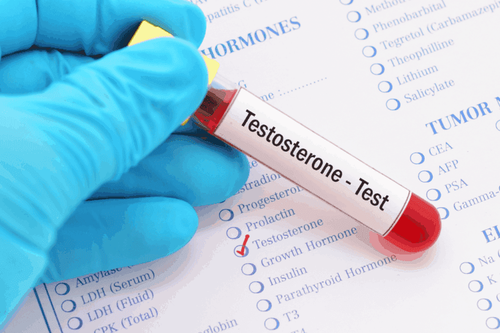
Việc xét nghiệm nồng độ testosterone sẽ bao hàm một xét nghiệm máu đơn giản
3. How is abnormal testosterone levels treated?
The most common treatment for testosterone deficiency is testosterone replacement therapy (TRT). Forms of this therapy include injections, patches, or gels containing testosterone to make up for the lack of testosterone in the body.Despite the popularity of testosterone replacement, this therapy is still recognized for its many risks and side effects. These include:
Sleep apnea Pimples Formation of blood clots Benign prostatic hyperplasia , or prostate enlargement Increases risk of heart attack or stroke. If you are taking medications or supplements (eg steroids) that have the potential to have an unusual effect on your testosterone levels, your doctor may recommend stopping them or recommending alternative medications. position.
Positive lifestyle changes are always recommended by doctors for patients. For example, exercising to build muscle and healthy weight loss through changes in diet can help balance testosterone levels.
If you notice any unusual signs or symptoms such as hair loss, weight loss or acne, decreased sex drive before the age of 40, get tested for testosterone levels. This test can help you shed light on underlying conditions, health problems, or lifestyles that are adversely affecting your body's production of testosterone.
In many cases, testosterone levels can vary with factors such as your age, diet, medication use, or how often you are physically active. Testosterone testing can help you determine if your testosterone levels are being affected by the natural aging process or by other factors that you can control.
Please dial HOTLINE for more information or register for an appointment HERE. Download MyVinmec app to make appointments faster and to manage your bookings easily.
Reference source: healthline.com




